In-Depth Presentations Show Students Real-World Psychology Cases

Professor Diane Graves created an "In-Depth" presentation series to explain what psychologists actually do and how they help people.
In-Depth Presentations
Program
- Psychology (B.A.)
Department
- Psychology & Counseling
What do psychologists actually do? What are their cases, and how do they help?
Diane Graves, Ph.D., associate professor of psychology, created a presentation series to answer those questions. The Department of Psychology and Counseling’s “In-Depth” presentations present clinical case studies once a month during common hour.
She started a similar series at her previous institution to create a time to dive into case studies linked to direct care because there wasn’t time for it in class. Since then, her previous institution hired a new professor because of all of the interest the series generated. When Graves arrived at Hood, she saw the same interest and started the series here in fall 2011.
“I wanted to provide an opportunity for students to learn about diverse mental health professions and applied clinical work,” she said. “The series also provides students a chance to meet faculty in the department they may not have in class. Finally, the presentations help connect students and faculty with shared interests for research collaboration.”
The sessions began with a range of topics. The first presentation highlighted a bitter custody battle involving court-ordered psychological evaluations. This session was followed by a presentation exploring family dynamics following a parental murder-suicide witnessed by two children. The session the following month reviewed brief and therapeutic interventions for relationship issues in the work environment.
When Hood’s counseling program started in 2015, more topics emerged for the case studies. The series has grown and now covers topics including psychiatry, counseling, custody cases, forensics psychology and industrial-organizational psychology. Sessions include methodology and treatment in a clinical case presentation.
Attendees can choose to receive research articles based on material presented so they can have something to take away and study. If students attend five or more of these sessions, they can earn a certificate in professional development from the Department of Psychology and Counseling.
“All of the In-Depths I have attended have been very interesting as well as educational,” said Dana Laforce ’19, who has earned a professional development certificate. “One of my favorite presentations was by Stephanie Dailey, a counseling professor who has experience working in disaster mental health, specifically shelter-in-place and traumatic stress. Her In-Depth case study was about a mother with four children living in a shelter for survivors of domestic abuse. This woman was referred to Dailey due to her suicidal ideation and social withdrawal.”
All faculty with applied degrees in the Department of Psychology and Counseling have shared cases, and alumni in private practices have come to speak. Guest presenters have included patients at ClearView Communities, a halfway house for those recovering from mental health issues. Patients come with their doctors to talk about their struggles if it benefits them to discuss it as part of therapy.
The most recent In-Depth presentations were by Hood faculty in fall 2018. Graves shared details of her work with an adolescent girl with double depression who was hospitalized following a suicide attempt. Terry Martin, Ph.D., associate professor of psychology, discussed his counseling work with a father who accidentally caused the death of his infant son and the role of grief in his treatment. Andrew Campbell, Ph.D., assistant professor of psychology and counseling and director of the counseling master’s program, presented his work with a young college student dealing with the fall-out of his coming-out experience with his family and an overwhelming college experience.
“These sessions allow students to hear authentic voices about real-life cases and treatment, and students learn how course material translates to real-world situations,” said Graves. “Most undergraduate programs don’t offer this type of extra learning experience, so it’s a pretty special opportunity. If there’s an area of expertise that we don’t have on campus, we will find someone outside of campus to speak on the topic.”
Photo: Megan Doughty Shaine, assistant professor of psychology and counseling, speaks during an In-Depth presentation
In-Depth Presentations
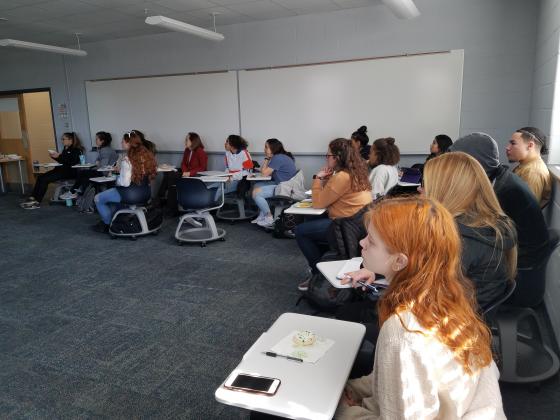
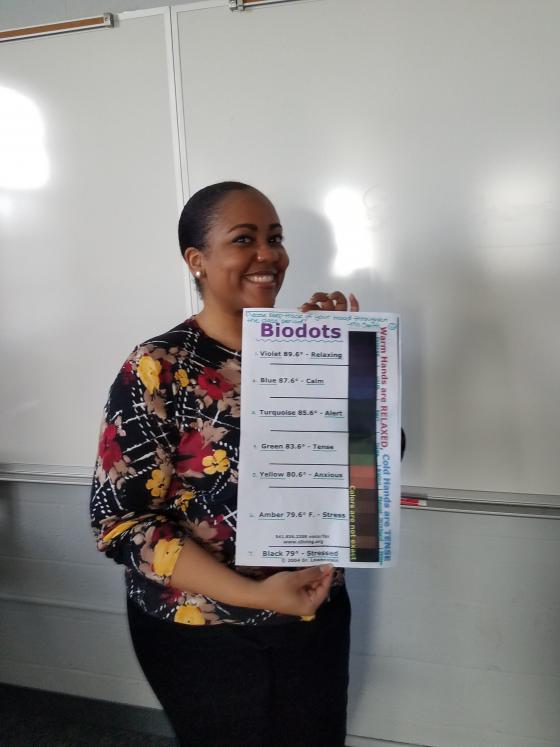
Atiya Smith ’03 gives a presentation.
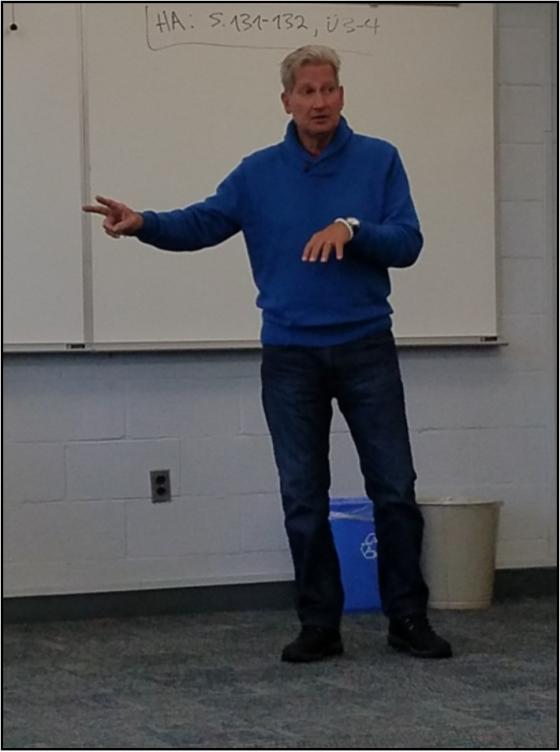
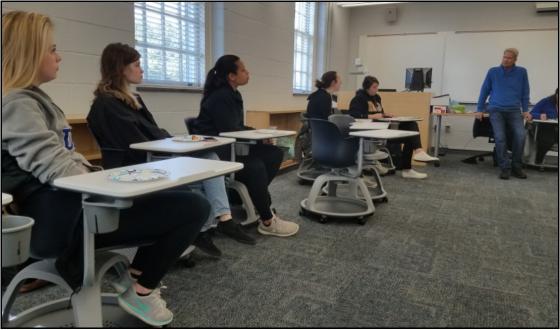
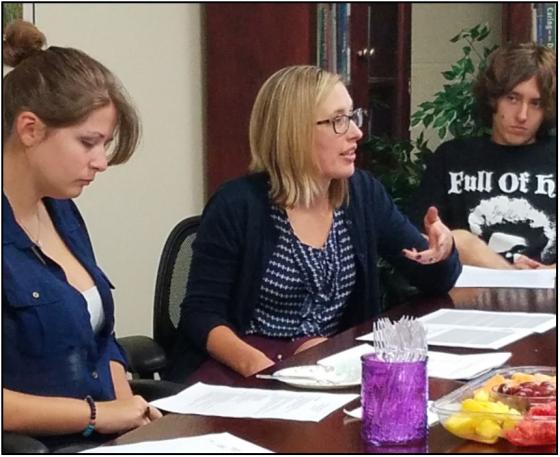
Are you ready to say Hello?
Choose a Pathway
Information will vary based on program level. Select a path to find the information you're looking for!
